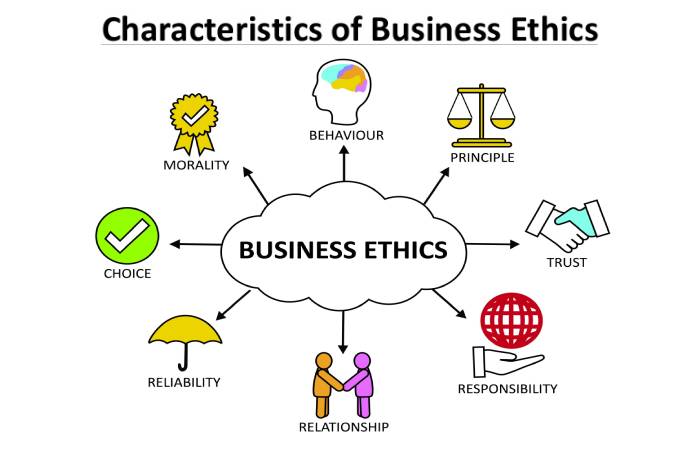Table of Contents
What is Business Ethics?
Business ethics is a set of principles and standards that guide a company’s performance in business. It is governed by morality: the difference between what is right and what is wrong, what is right and what is inappropriate. Ideals and values also control them.
Business ethics applies to all aspects of the organization, including the individuals’ behaviour that comprise it. The interrelation between business ethics and its human resources’ professional ethics is the basis that will guide the business.
Companies must also minimize any damage or negative impact generated in the environment or nearby communities. This is also part of the ethical principles, but due to the social issue’s specificity and complexity, this area is called Corporate Social Responsibility (CSR).
Ethical business has great value among customers and employees. Ethics should be part of the corporate culture at all times so that the company rely on the products or services it provides, especially long – term.
Origin of Business Ethics
- Ethics is a branch of philosophy that deals with the analytical study of morality, virtue, duty and good living. In the world of business, business ethics seeks to find the reasons that justify one moral system for the other, to achieve a balance or general improvement.
- The term “business ethics” emerged in the United States in the 1970s and spread in Europe and Japan in the 1980s.
- From the moral point of view, the concept did not mean the same for all world regions due to each one’s socio-political and economic differences. What was considered acceptable in one territory might not be permitted in another.
- Business ethics became an academic discipline after a group of philosophers intervened and debated “ethics in medicine.”
- As a discipline, business ethics deals with studying the morals around companies’ performance and their impact on society.
- In 2000, issues around business ethics were associated with the United Nations Global Compact.
- This pact consists of an international initiative to promote ten universally accepted principles on the importance of integrity and ethics in companies’ commercial relations and people in the business world.
Characteristics of Business Ethics

Companies are legal entities, and, like human beings, their activities must be based on compliance with the law and be legitimate before the community. That is why they must apply ethics at the organizational level. Some characteristics of business ethics, as established by the United Nations, are:
Solidarity: It consists of actively expressing interest in others’ well-being (of its members and external agents).
Efficiency: It consists of the responsible use of resources, both for production and for the organisation’s performance.
Rationality: It consists of using logic to make decisions and not impulses, prejudices or emotions.
Fairness: It consists of treating individuals equally, without prejudice or discrimination. It requires having the capacity for empathy.
Dignity: It consists of acting responsibly, respecting others (other organizations or people) despite differences.
Transparency: It consists of showing your activity clearly and simply, without hiding information or generating confusing messages.
Continuous improvement: It consists of a performance in constant evaluation, although it is working correctly.
Importance of Business Ethics

- Business ethics is an essential factor for society. Businesses have great potential to transform people’s lives and alleviate poverty through economic growth.
- However, they must be aligned with the objectives of the society they serve; that is, they must act under business ethics. Otherwise, one of the parties (of the company or the company) may be reduced.
- The governments of developing countries face many social problems and economic defying ethical practices because of the contrasts between poverty and the wealthier classes, social inequality and access to a quality of life that meets the basic needs.
- Acting under business ethics represents a financial cost for any organization, long-term investment for its subsistence, and environment.
- The benefits are several: reduction of fatal accidents, optimization of the budget after proper management of resources, increased employee motivation, improvement in the institution’s image within the market.
Examples of Business Ethics

Some examples of ethical conduct that can occur in the business world are:
- Act according to values such as equality, freedom, dialogue, respect and solidarity.
- Develop an organizational culture with common values for all its members, beyond the different levels of hierarchy.
- Make an effort to achieve all the company’s agents, such as shareholders, managers, employees, suppliers, and customers.
- Assume social responsibility for their actions and their direct and indirect impact.
- Work actively to reduce conflicts between the parts that make up the company.
Some examples of unethical conduct that can occur in the business world are:
-
- Bribes to the authorities to make a profit.
- Corruption such as the illegitimate use of privileged information (tax, financial or legal).
- The lack of security measures to carry out activities.
- The abuse of power internally and with agents external to the company.
- Failure to comply with current regulations.
- Discrimination e gave for reason gender, ideology, religion, physical
- The farm labour in any of its forms (such as long hours or child labour).
Conclusion
Business ethics is an indispensable part of a company. It is about having ethical principles by which a business can achieve a social commitment.
The important thing is that it carries out from the company’s upper levels to the employees to feel motivated and follow its values.
And also, it is essential that they feel involve and knowledgeable from the beginning of this type of regulations to put them into practice and transmit them in their tasks.


